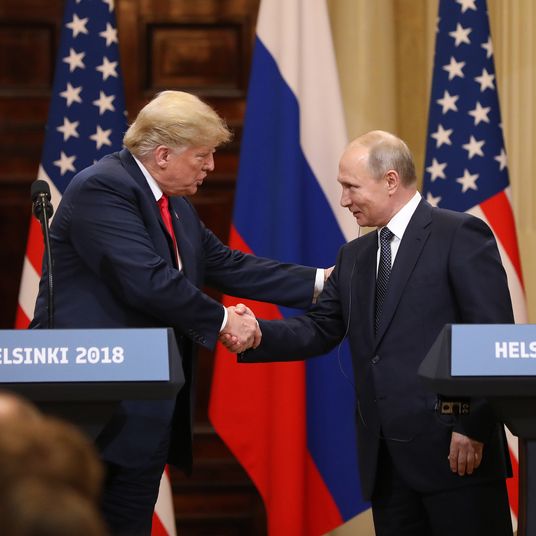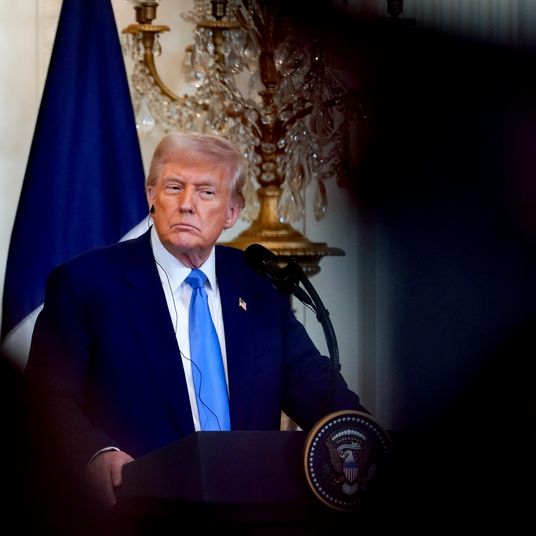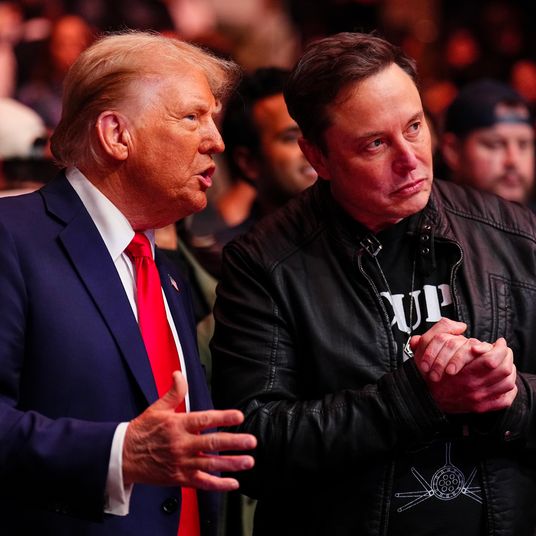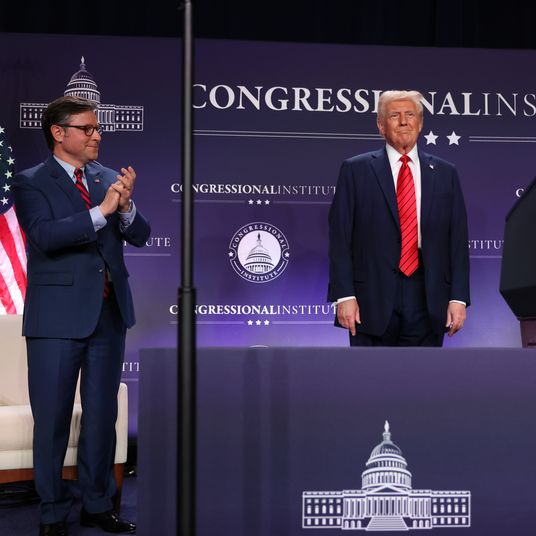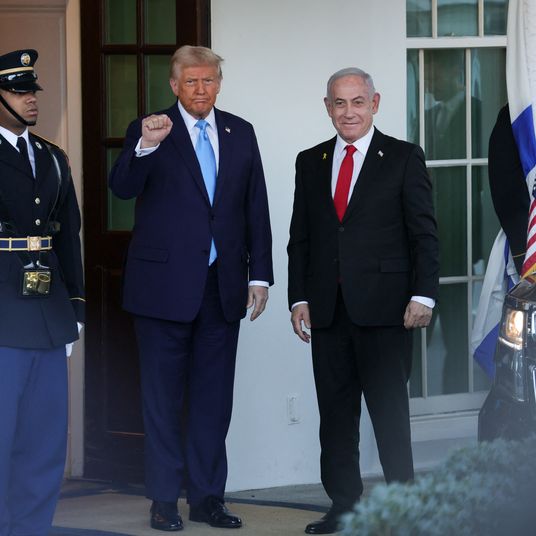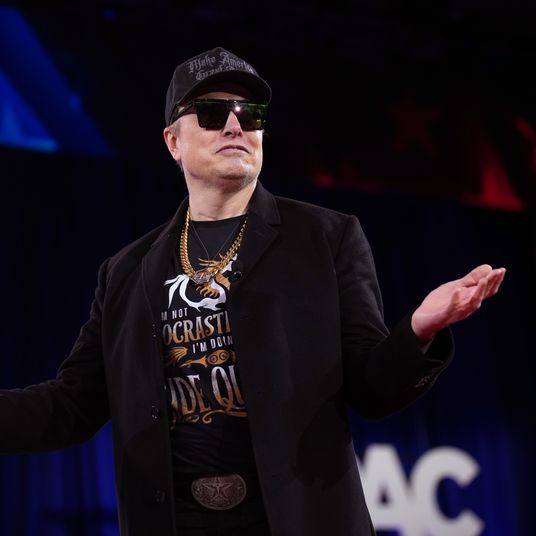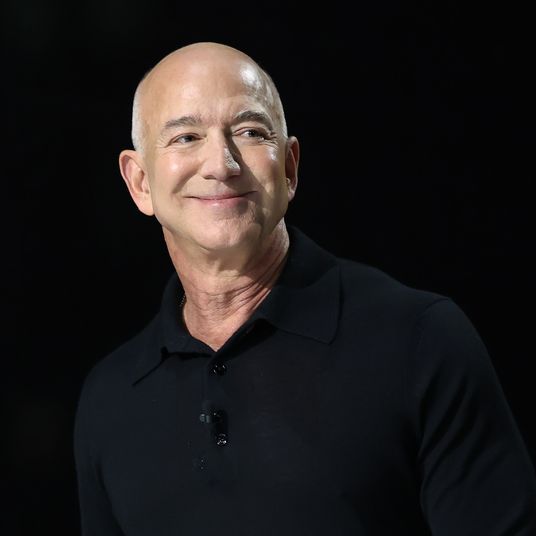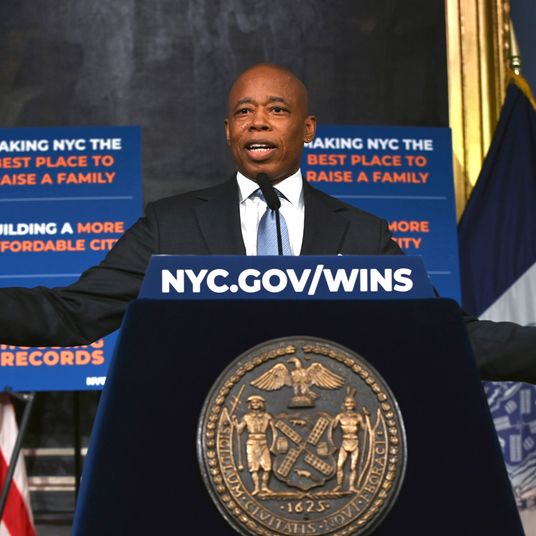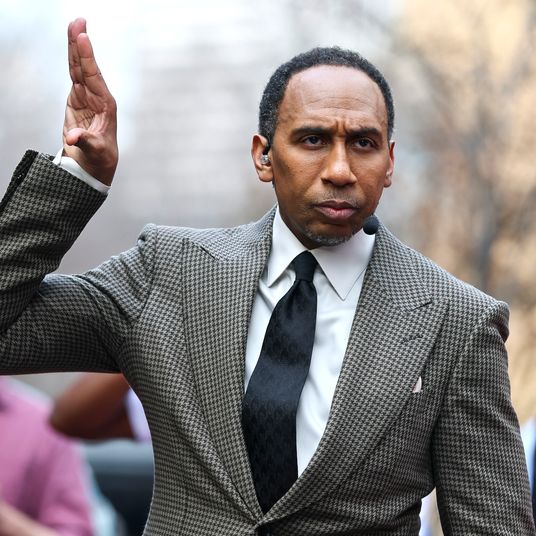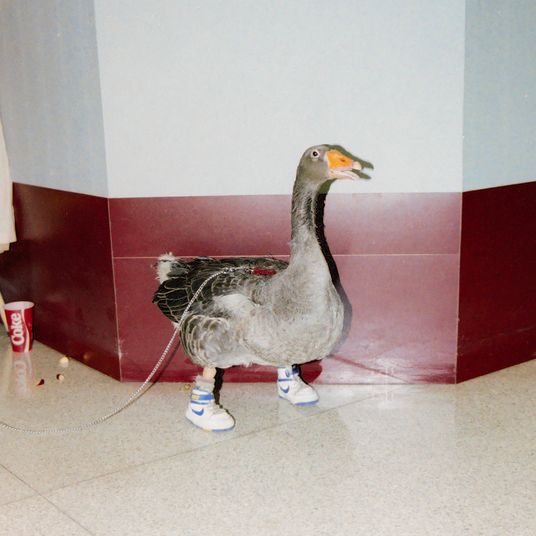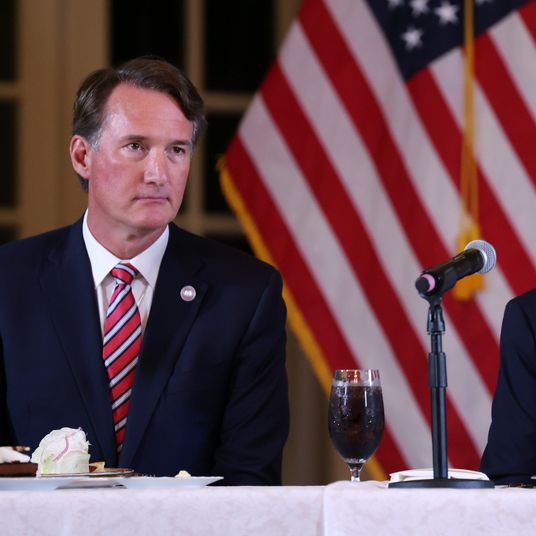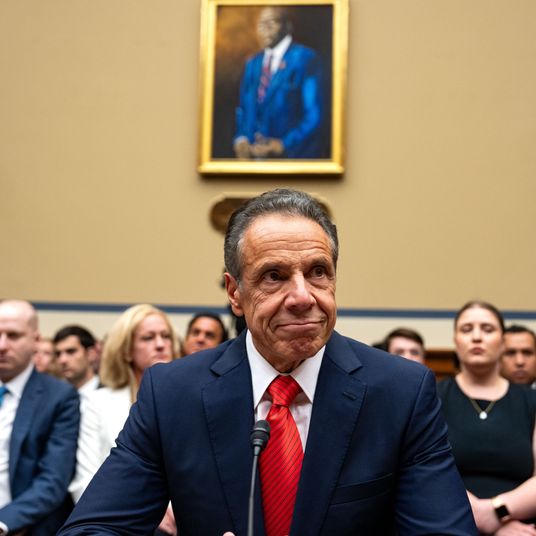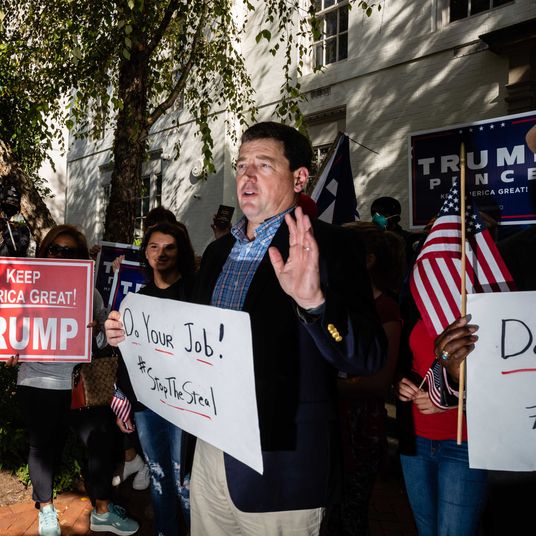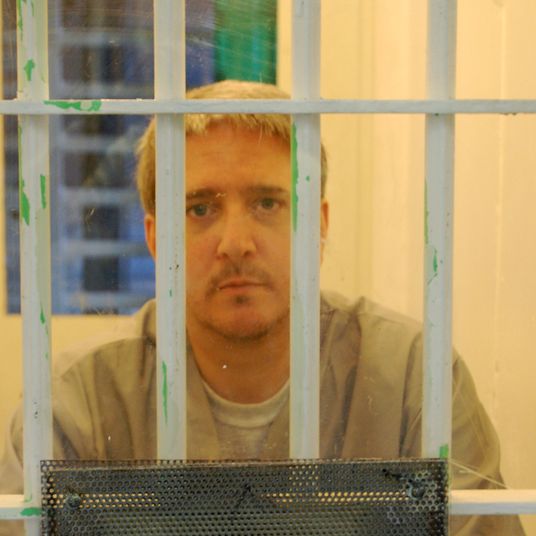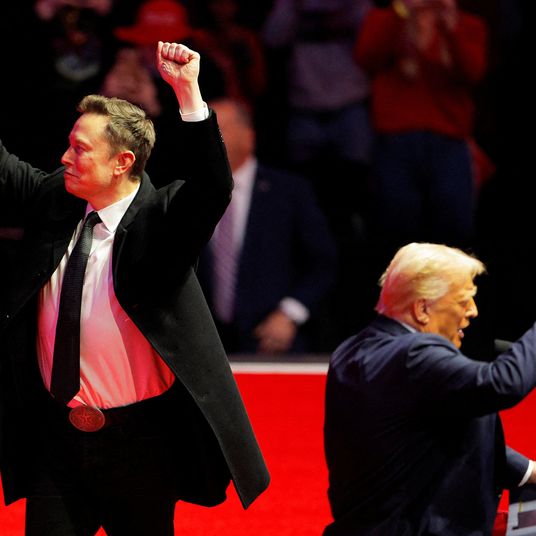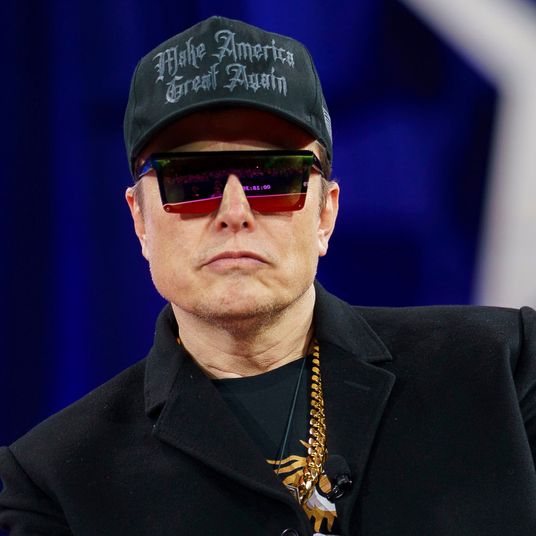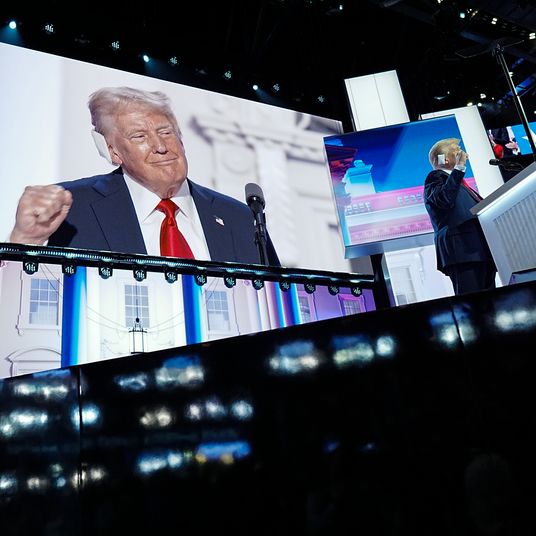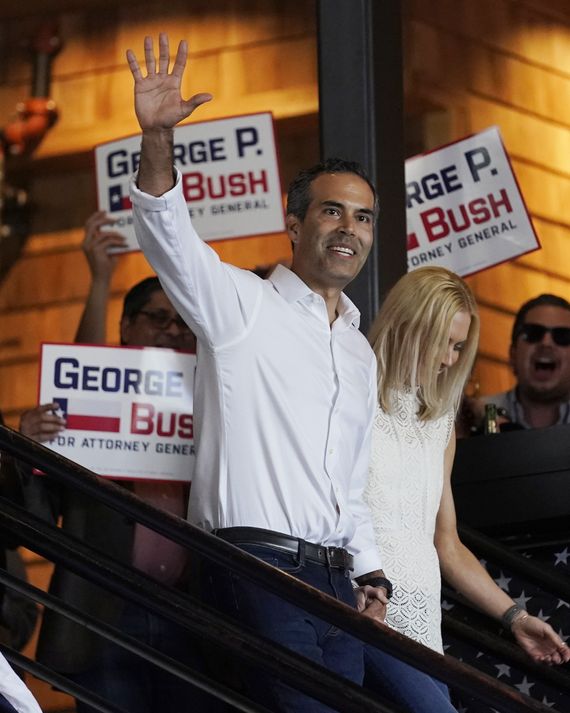
To grasp Donald Trump’s swift transformation of the Republican Party, you don’t need to look much further than the extraordinary mutual hostility between the 45th president and the previous two Republican presidents, George H.W. and George W. Bush. Some of that ill will, perhaps, is attributable to the shellacking, rhetorical and electoral, administered by Trump in 2016 to the latest family dynastic aspirant to the presidency, former Florida governor Jeb Bush. Even as most of the GOP bent to its new master after his nomination, the Bush family held out (in both 2016 and in 2020), with one conspicuous exception: Texas land commissioner George P. Bush, the son of Jeb and Columba Bush.
Before the Trump hurricane arrived, George P. was often regarded as the future of his family’s legacy: a handsome, half-Latino Bush replicating his father’s rise in the congenial political atmosphere in which his grandfather and uncle had flourished. As the only Bush in elected office in 2016, though, George P. didn’t have the luxury of sulking on the sidelines, and after some initial reluctance, he endorsed and campaigned for the MAGA cause. Trump reciprocated in 2018 by endorsing George P., who was in a potentially difficult primary battle with his predecessor as land commissioner. Now that Bush the Younger is attempting to climb another rung on the political ladder by challenging his state’s scandal-plagued Republican attorney general Ken Paxton, his reputation as the Trump-acceptable member of his family is a key asset:
George P. would dearly love another Trump endorsement. But his much-maligned incumbent opponent has his own hard-core Trump credentials, most notably launching a December 2020 lawsuit contesting state certifications of Joe Biden’s victories in Georgia, Michigan, Pennsylvania, and Wisconsin. As the Washington Post reported, Paxton’s petition was summarily rejected by the U.S. Supreme Court on grounds that Texas did not have standing to question the electoral votes of other states, but he stored up treasure in MAGA-land to help offset his other problems:
Paxton’s star seemed ascendant as he positioned himself as one of Trump’s biggest allies, willing to fight legal battles on sanctuary cities, the Affordable Care Act and now the outcome of the presidential election. But the shadows over Texas’s folksy attorney general have been growing longer. Trump has lost the election. Paxton’s last-gasp effort to overturn the outcome via the U.S. Supreme Court has failed. His top deputies recently reported him to the FBI for alleged crimes such as bribery. And the Associated Press has reported that he cheated on his wife, Angela Paxton, who is a Republican state senator in Texas.
So George P. may need to ratchet up his love for the former president — not his uncle, 43rd, mind you, but 45th — to displace Paxton.
The most obvious way to understand this soap opera is to treat George P. Bush as a prodigal grandson, son, and nephew who has soiled if not betrayed the family tradition. But that would be unfair to the land commissioner, who, from a different perspective, is simply continuing the Bush practice of accommodating oneself to whatever passes for conservative Republicanism at any one moment, as I explained a few years ago:
Poppy [George H.W. Bush’s nickname from childhood] followed in the footsteps of his politician father Prescott Bush, who represented Connecticut for a decade in the U.S. Senate. Prescott was by any measure a moderate — or even liberal — Republican: a despiser of Joseph McCarthy, a close friend of Nelson Rockefeller, and a supporter of civil rights legislation. Even more conspicuously, Poppy’s father was heavily involved in Planned Parenthood (and its predecessor organization, the Birth Control League), and the quintessentially WASP-y cause of family planning.
Poppy continued his father’s commitment to Planned Parenthood (his enthusiasm for contraception was such that he was known as “Rubbers” by his congressional colleagues in the 1960s) until it became a political liability, along with his hyper-Establishment foreign-policy views. By the time he ran for president in 1980, George H.W. had suddenly become “pro-life” and essentially offered himself as a more orthodox conservative alternative to Ronald Reagan (he did not, for example, embrace Reagan’s newfangled supply-side fiscal theories, which he called “voodoo economics”). But in choosing H.W. as his running mate, Reagan defied considerable distrust of the Bush clan among movement conservatives; the move at the 1980 GOP Convention to draft former president Gerald Ford as Reagan’s veep was largely a product of those concerns.
In took eight long years of subservience to Reagan and special attention to the Christian right for George H.W. Bush to become acceptable to conservatives as the 1988 presidential nominee; he got lucky when his top rival Bob Dole offended the anti-tax wing of the GOP by refusing to sign a no-new-taxes pledge just prior to the New Hampshire primary. But then, of course, H.W. ran afoul of his own no-new-taxes pledge as president by agreeing to a bipartisan deficit-reduction deal that had a revenue component. This legendary “Bush betrayal” is what H.W.’s sons had to overcome before pursuing their own national political ambitions.
Jeb was considered the more cerebral, and genuinely ideological, Bush brother in the restoration that began after the 41st president lost his 1992 reelection bid. But when W. won his 1994 gubernatorial race in Texas even as Jeb lost his in Florida the same year, he became the dynastic favorite, and then began a successful effort to convince conservatives that while he was the biological heir of George H.W. Bush, he was the ideological heir of Ronald Reagan. W. had the near-universal backing of movement conservatives in his 2000 nomination contest fight with John McCain and maintained their strong support in his 2004 reelection bid.
Toward the end of his presidency, there was an increasingly powerful conservative backlash against Bush’s management of the Iraq War and his support for comprehensive immigration reform. As his approval ratings collapsed in the wake of the 2008 financial crisis, a second Bush president found himself on the outs with prevailing opinion on the right. This helped open the door to Trump.
So George P. Bush is making the same sort of adjustment to reality as his forbears. It is indeed disturbing how steadily both the GOP and the conservative movement have drifted into genuine extremism since 1980; while Trump accelerated the process, he by no means initiated it. And for all the attention gained by movement-conservative Never Trumpers since 2016, it’s more striking how many inheritors of the Goldwater–Reagan–George W. Bush tradition (e.g., Ted Cruz, Tom Cotton, Mike Lee, and the entire membership of the House Freedom Caucus) are now the Trumpiest of Trump supporters. George P. Bush is just moseying along on the great rightward cattle drive of his party — and of his family. But it may prove difficult for him to keep up.







